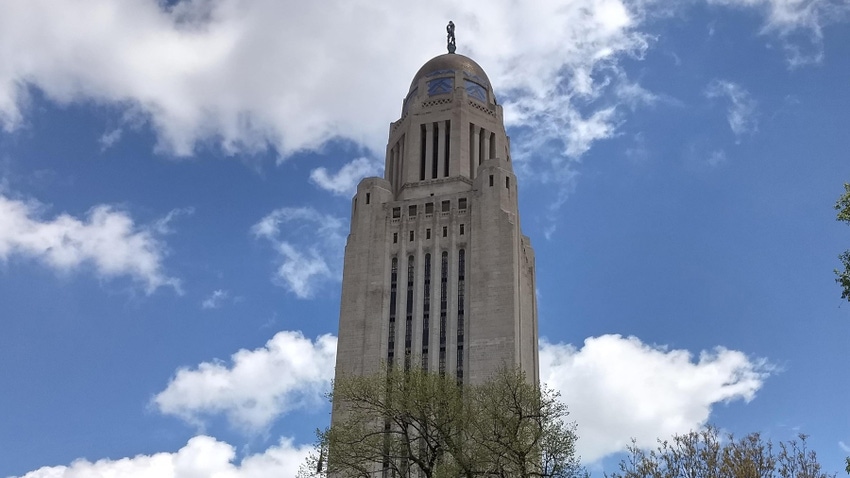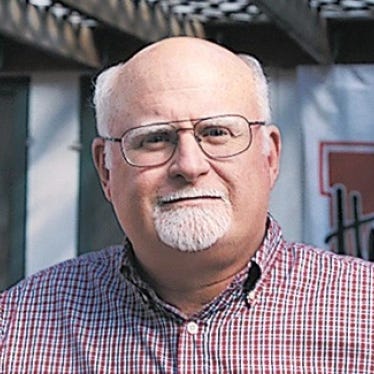
In spite of a difficult 2023 session held hostage at times by filibusters, the Nebraska Unicameral enacted laws that, according to Gov. Jim Pillen, provide “transformative” property tax relief.
Bruce Rieker, senior director of state legislative affairs for Nebraska Farm Bureau, says the tax measures passed “will reduce Nebraska’s overreliance on property taxes and seek a more balanced system to fund education. For all property taxpayers, the result is a reduced tax burden by 30% when the measures are fully in place.”
Tax bills
Rieker explains some of the more prominent bills on the Farm Bureau radar that came out of the session this year.
LB 243 has several provisions affecting property tax credits. It increases the minimum relief allowed under the Property Tax Credit program from the current $275 million to $550 million by 2029. It then provides a percentage increase equal to the state’s annual valuation growth for 2030 and each tax year thereafter. In addition, it places a cap on revenue growth of 3% annually for schools, with some exceptions available either by a supermajority vote of the school board or a vote of the people, Rieker adds.
The bill also curtails community college property tax authority. In exchange, it replaces it with state funds to offset the dollars lost by restricting that levy authority.
“Just like last year, there will be a refundable income tax credit for property taxes paid to community colleges this year,” Rieker says. “However, in 2024, there will be a wholesale change in which property tax revenues for community colleges will be replaced with state funding, with a growth factor of 3.5% for each year thereafter.”
LB 583 beefs up state aid to public schools in a historic fashion. The Unicameral allocated $1 billion to the new Education Future Fund to ensure the sustainability of additional state funds for school foundation aid and special education.
“This fund will receive an additional $250 million per year each year to further ensure the new level of state funding,” Rieker says. “School districts, starting in 2023-24, will receive additional aid equal to $1,500 per student. Plus, they will receive state reimbursement for 80% of their expenses to provide special education services.”
LB 754 lowers the personal and corporate income tax rate from 5.84% to 3.99% by Jan. 1, 2027, and speeds up the elimination of state income taxes on Social Security benefits, effective Jan. 1, 2024. It also beefed up child care tax credits.
“Beginning Jan. 1, 2024, a parent or legal guardian would be eligible to receive a refundable income tax credit based on the number of children and the parent’s income,” Rieker says.
Other measures
Here are some other actions taken during the legislative session:
LB 562 increases access to E15 across the state by providing additional tax credits to eligible retailers.
$575 million was allocated for constructing the Perkins County Canal on the Nebraska/Colorado border. The proposed canal and reservoir system, if built, would draw water from the South Platte River. Nebraska would set aside that money for the canal from the cash reserve fund. The canal would begin in Colorado and bring water to southwest Nebraska.
The Unicameral allocated $300,000 for AgrAbility in Nebraska, to continue assisting disabled farmers.
Additional funds were approved to help counties with the cost of bridge construction and repair.
$1 million was allocated for the Nebraska Department of Energy and Environment to research groundwater quality.
Sales tax on baling wire and twine used in commercial agriculture was eliminated.
The Legislature bumped up the incentive for farmers using the state’s Beginning Farmer Program by increasing their maximum net worth for eligibility from $200,000 to $750,000. “This creates more opportunities for both beginning farmers and landowners who want to sell land,” Rieker notes.
Learn more at nebraskalegislature.gov.
McCabe is a former longtime editor of Nebraska Farmer. He writes from Lincoln.
About the Author(s)
You May Also Like






